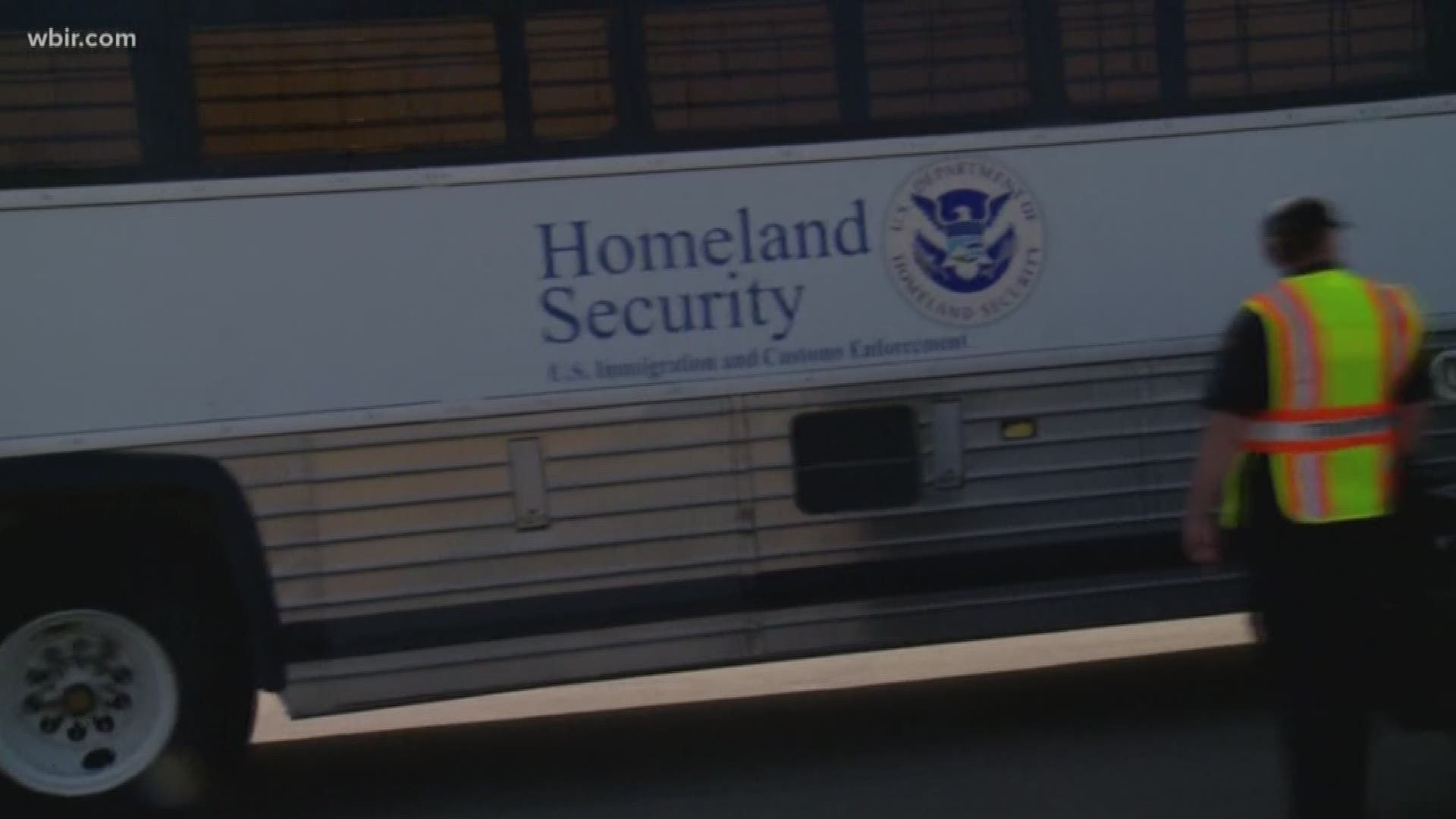KNOXVILLE, Tenn. — Video of a human chain sparked lots of questions about the authority and power of immigration officers.
That chain blocked ice agents from detaining a man and his child in Middle Tennessee on Monday. Neighbors surrounded the car shielding the man and his son for hours, and then moved to escort him into a home in Hermitage just outside Nashville. ICE agents left without making an arrest.
Hundreds of you reacted to the story on social media--many asking questions about why the people who made the barricade weren't arrested.
10News took your questions to local immigration experts, and they said this is complicated.
"That's something that would be an unusual exercise of ICE's authority," said Lincoln Memorial University law professor William Gill. "ICE has a civil warrant to detain somebody who's involved in removal or deportation proceedings. The folks around the car would not be within the scope of that warrant. The only thing that you would think about charging them with is some kind of obstruction charge, and ICE probably decided they didn't want to do that."
When ICE acts, the agency can issue a civil warrant to detain people. Experts said people often don't know the difference between a civil warrant and court-issued criminal warrants.
"A civil ICE warrant does not give authority for an immigration official such as an ICE officer to forcibly enter the home," Gill said.
The neighbors who formed a human chain appeared to be aware of this.
"The neighbors recognized that there was distinction and took action," said Arlene Amarante, an assistant professor of law at Lincoln Memorial University and a former immigration attorney.
Metro Nashville Police officers were there, and a spokesperson said it was to keep the peace.
"I think all of that contributes to the decision on the ground to hold off, which happens a lot when people don't consent," Gill said. "Usually what you see in this situation is that it's easier to try to get that person to consent, and when you do, you know you're safe. Otherwise, you get into pretty murky territory."
Claudia Caballero, the Executive Director of Centro Hispano of East Tennessee, said the neighbors' jump to action is encouraging.
"To see the neighbors come out and try to feed and support and try to protect them just reinforces to me that there is a big national story happening, but locally, when you know the person, when you live next to them, when your kids grow up with those people and you create a family, you create a safe support system, and that to me was really heartening and it was a positive reaction to a very unfortunate situation," Caballero said.
The Tennessee Immigrant and Refugee Rights Coalition said in a Twitter statement that reads in part, "We'll continue to work to make sure everyone knows their rights and that our communities are organized to defend their neighborhoods."

